
Turkey is a magnificent crossroads of history, culture, and natural wonders, offering travelers an extraordinary range of experiences. With its position bridging two continents—Europe and Asia—this remarkable country is a hub of ancient civilizations, stunning landscapes, and modern allure. In this guide, we delve into Turkey’s vibrant history, enchanting landmarks, diverse natural beauty, delicious cuisine, and cultural richness. Whether you’re exploring bustling cities or tranquil landscapes, Turkey has something for every traveler.
Introduction
Turkey is a captivating destination that invites exploration through its ancient past and thriving present. This country, where the East meets the West, is home to a rich tapestry of diverse cultures, landmarks, and natural beauty. From the historic beauty of Istanbul to the surreal landscapes of Cappadocia, Turkey offers a unique experience that blends cultural heritage with natural charm. Its combination of ancient ruins, bustling markets, and scenic coastlines makes Turkey a must-visit destination for travelers around the world.
Fascinating History and Landmarks
Turkey is a land where history comes alive. It is home to some of the world’s most iconic landmarks, from the ruins of ancient cities to stunning Ottoman palaces. A journey through Turkey is like stepping into the past, with each site telling a fascinating story of empires, civilizations, and cultures.
Ancient Ruins and Archaeological Sites
-
Troy:
-
The city of Troy, immortalized in Homer’s Iliad, is an archaeological marvel located in Turkey’s northwest. Visitors can explore the remnants of this legendary city, including the famous “Trojan Horse” and the ancient city walls, providing a glimpse into one of the world’s most well-known ancient tales.
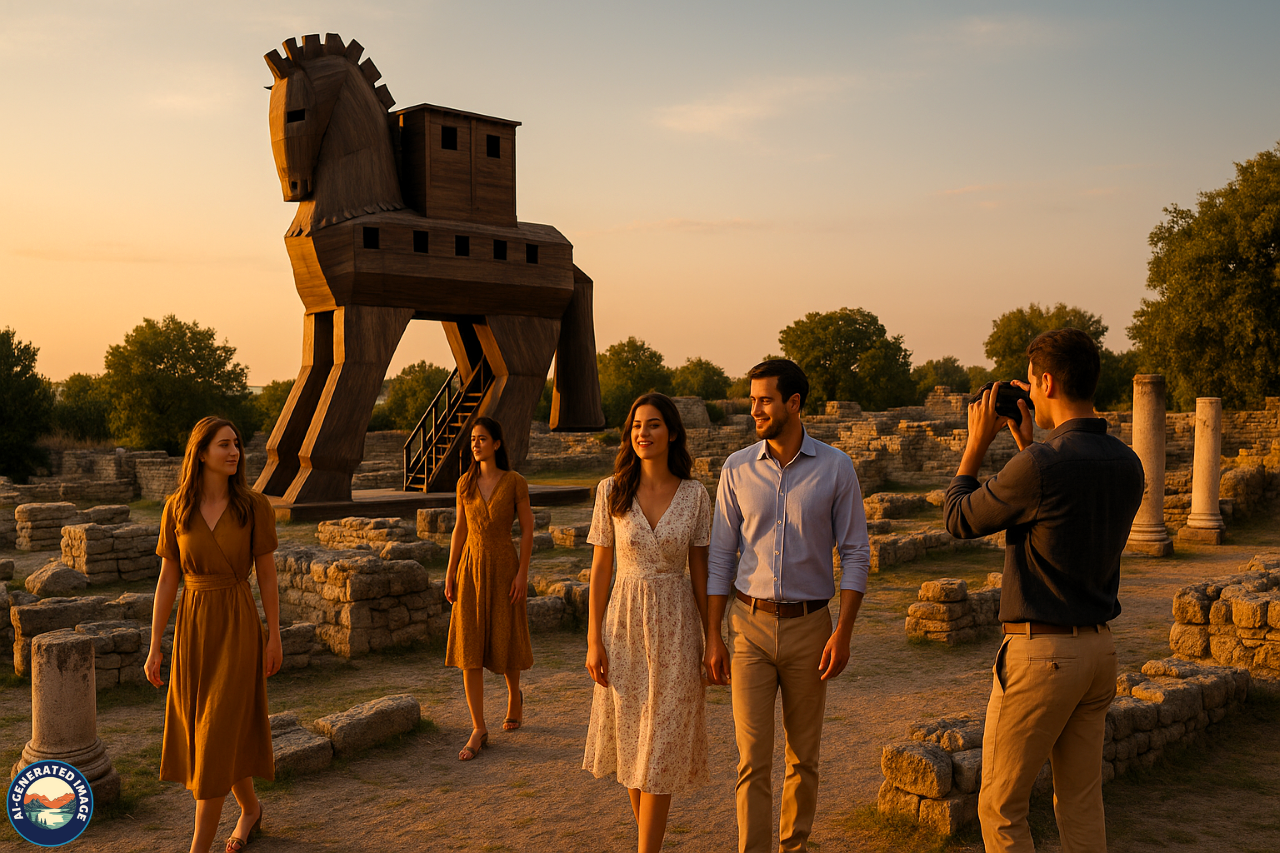
-
Ephesus:
-
Known as one of the most extensive and best-preserved ancient cities in the Mediterranean, Ephesus offers an incredible look into the Roman Empire’s grandeur. The ruins include the awe-inspiring Temple of Artemis, the Celsus Library, and the Great Theatre, one of the largest open-air theatres of its time.
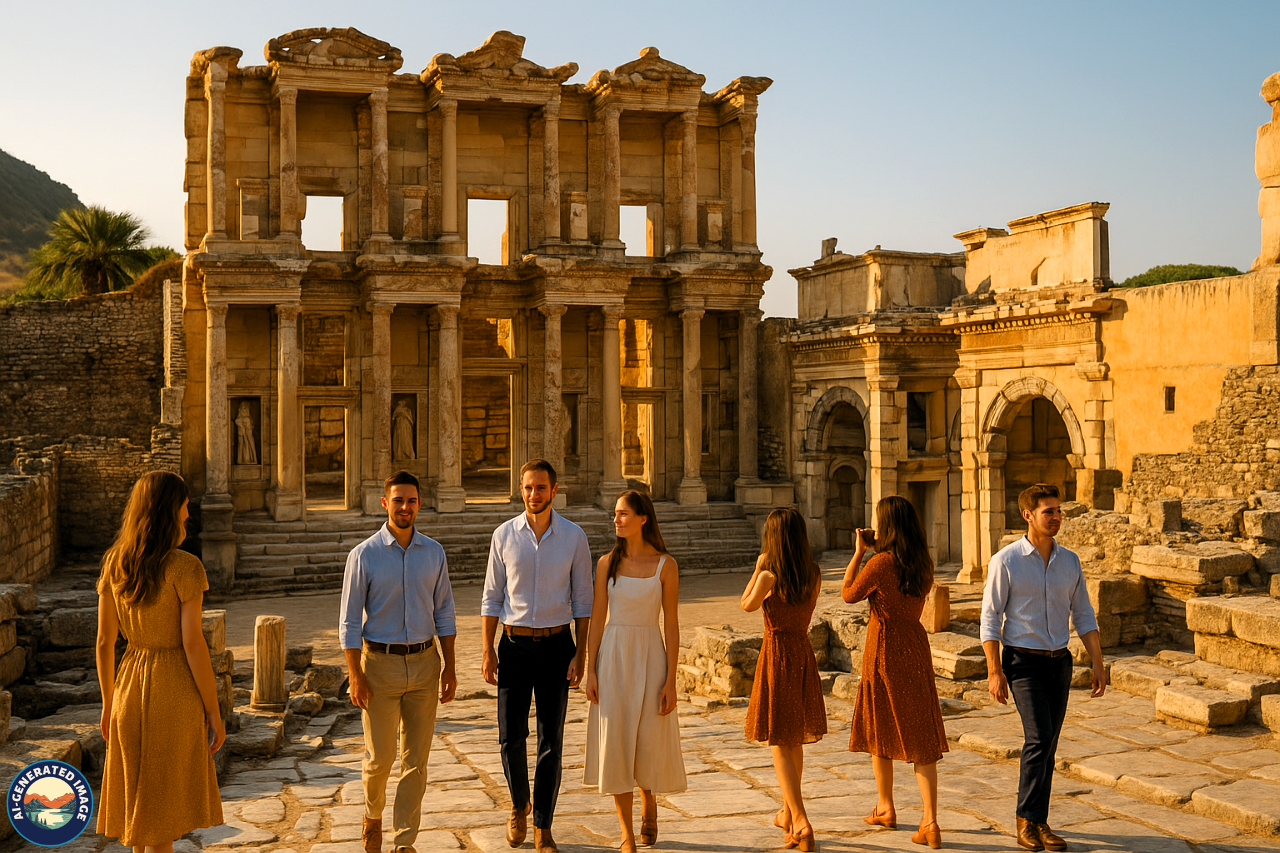
-
Hierapolis and Pamukkale:
-
Pamukkale, famed for its white, mineral-rich thermal waters, offers one of Turkey’s most unique natural sights. The cascading terraces are complemented by the nearby ancient city of Hierapolis, where visitors can explore its Roman bathhouse, theatres, and extensive necropolis.
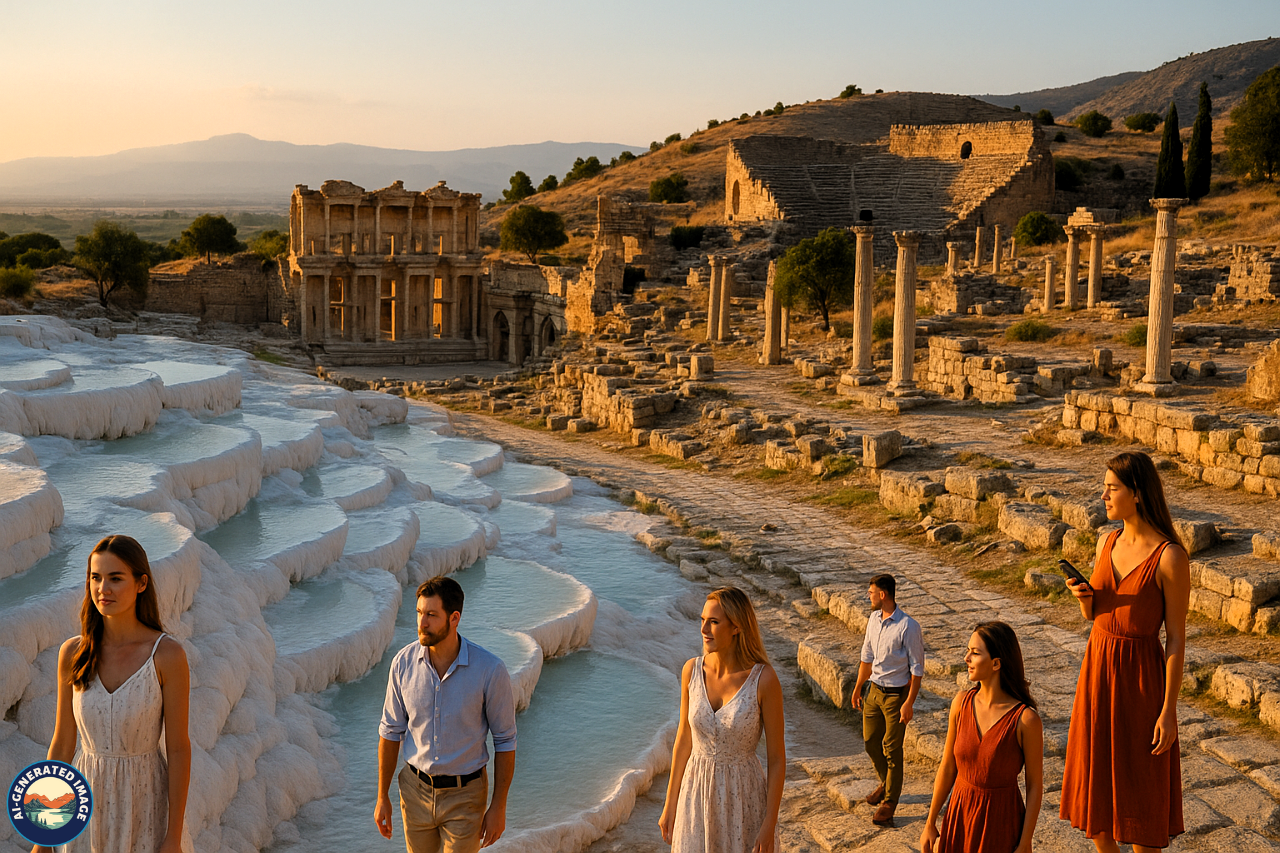
-
Göbekli Tepe:
-
Located in southeastern Turkey, Göbekli Tepe is the world’s oldest known temple complex. Dating back to around 10,000 BCE, its discovery has redefined our understanding of ancient civilizations and their spiritual practices.
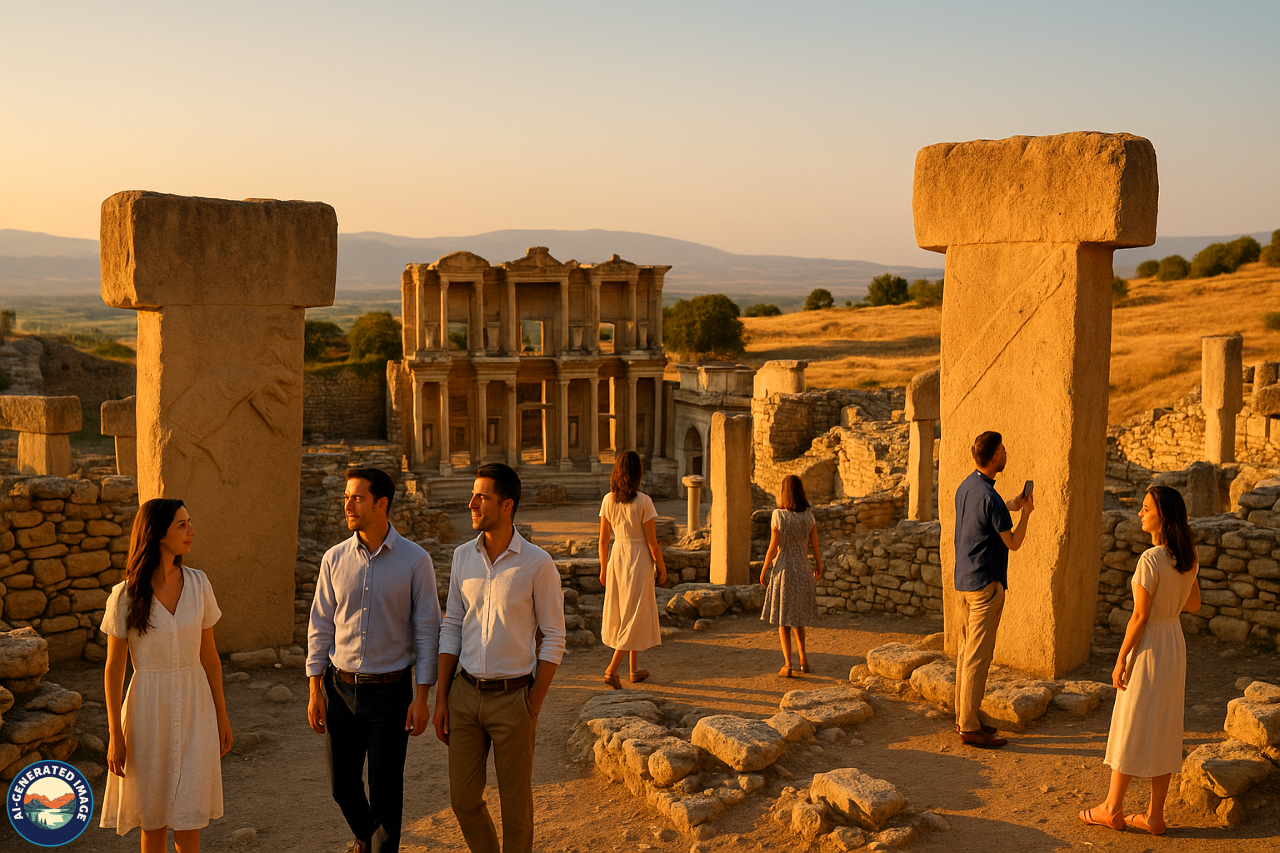
Ottoman Legacy
-
Topkapi Palace:
-
Situated in the heart of Istanbul, Topkapi Palace was once the royal residence of Ottoman sultans. Today, it is a museum filled with treasures from the Ottoman Empire, including the famous Harem, the Sacred Relics, and the striking Treasury.
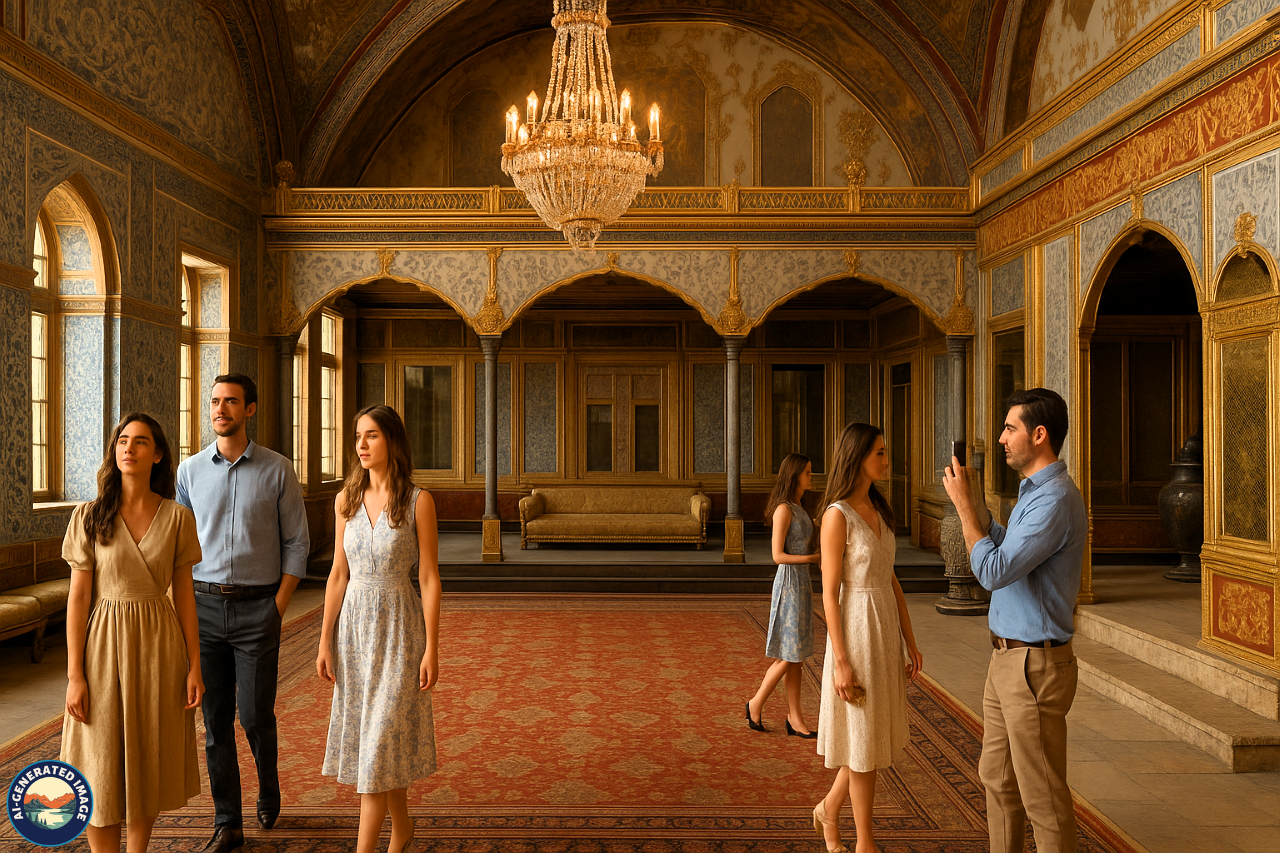
-
Hagia Sophia:
-
Originally constructed as a Byzantine cathedral in 537 AD, the Hagia Sophia later became a mosque under Ottoman rule. Today, it stands as a museum and a symbol of Turkey’s rich history, with its magnificent architecture and beautiful mosaics from both Christian and Islamic traditions.
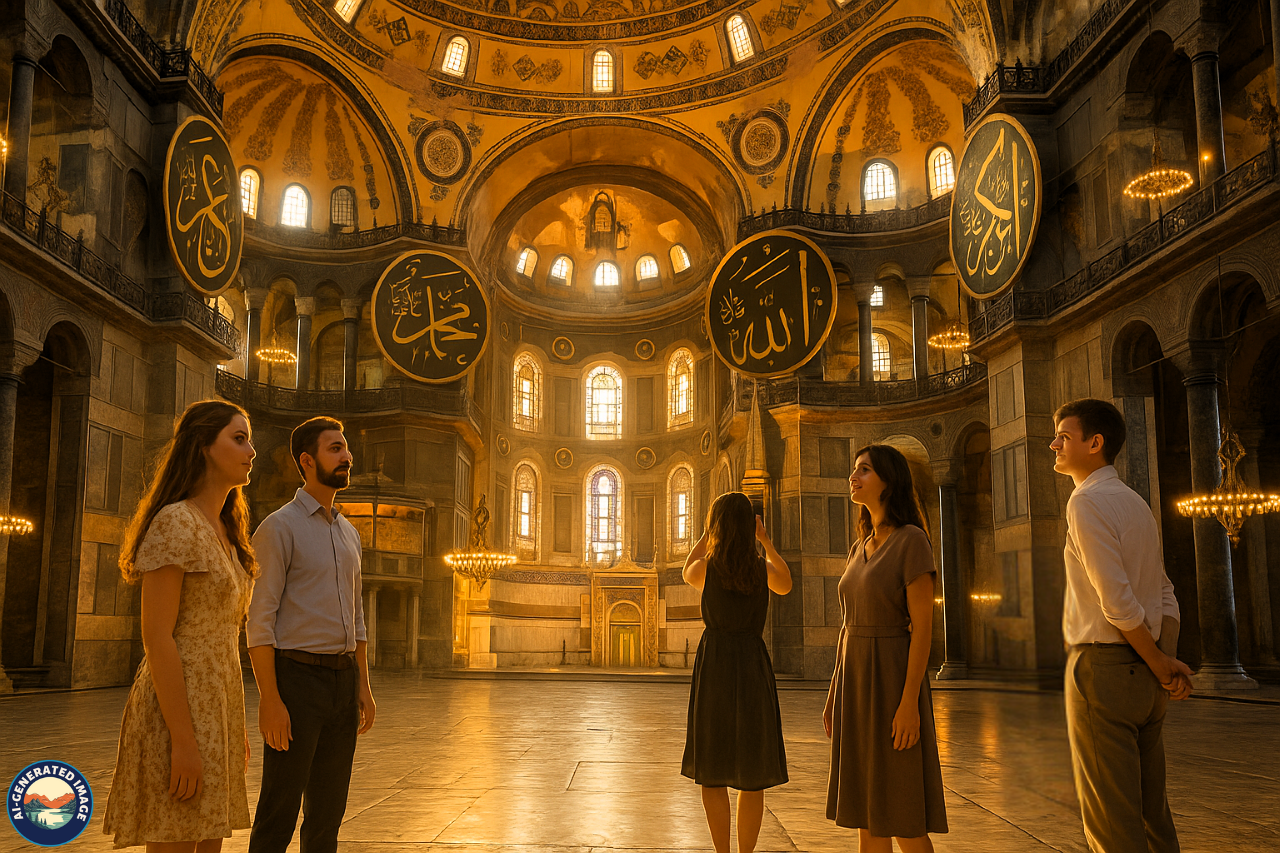
-
Blue Mosque:
-
Also known as the Sultan Ahmed Mosque, the Blue Mosque is an iconic symbol of Ottoman architecture. Its grand dome and cascading minarets offer a striking contrast to the surrounding cityscape, and its interior is adorned with blue tiles, which give the mosque its name.
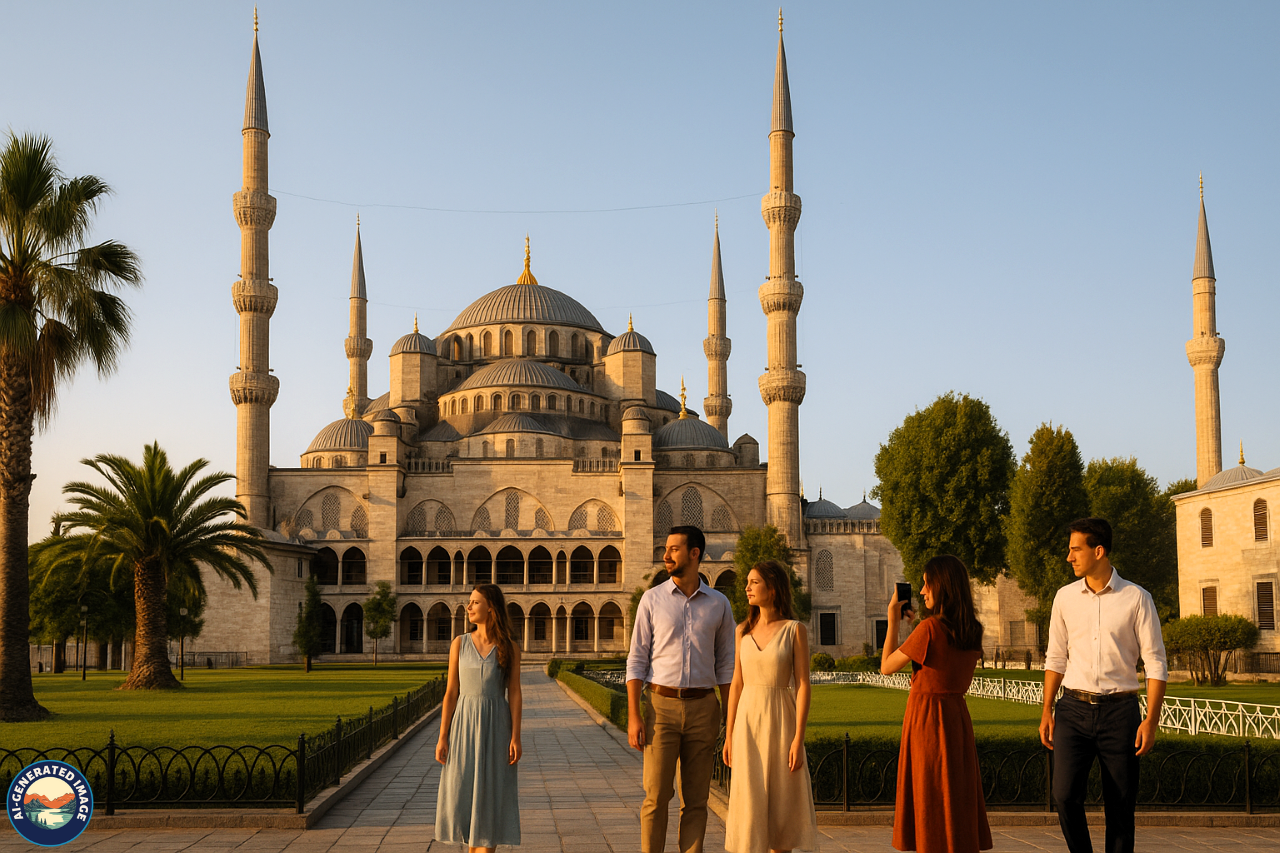
Byzantine Influence
-
Chora Church:
-
One of the finest examples of Byzantine architecture, the Chora Church is renowned for its spectacular mosaics, which offer a glimpse into the religious art of the Byzantine Empire. These mosaics depict scenes from the Bible in rich detail and vibrant colors.
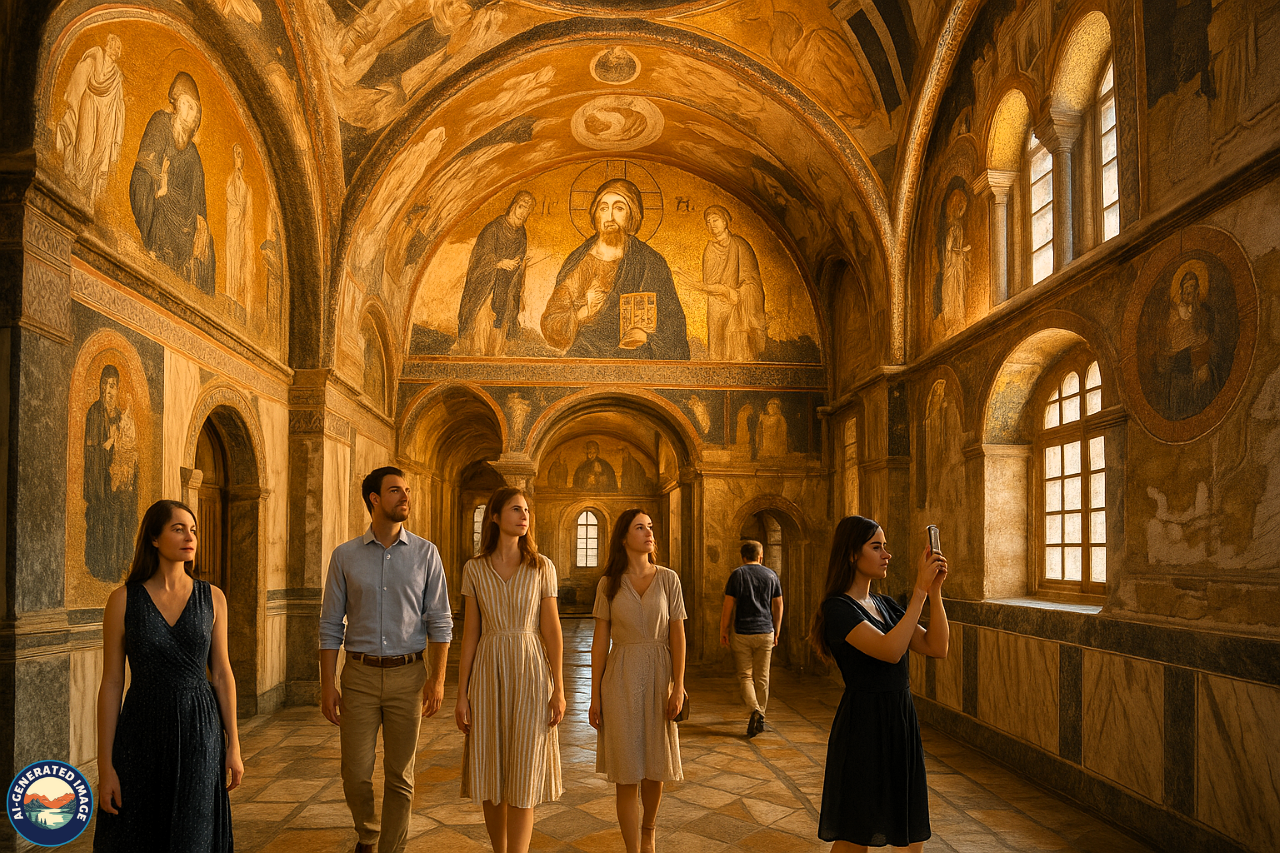
-
Istanbul:
-
The city that once served as the capital of both the Byzantine and Ottoman empires, Istanbul, remains a living testament to the world’s long and intricate history. Its historic districts, such as Sultanahmet and Beyoğlu, are a blend of ancient monuments, modern attractions, and vibrant life.
Breathtaking Natural Wonders
Beyond its historical significance, Turkey is blessed with some of the most stunning natural landscapes. From lush valleys to rocky peaks and pristine beaches, the country is a paradise for nature lovers.
Cappadocia: Land of Fairy Chimneys
Cappadocia is a land of surreal landscapes. The region’s famous “fairy chimneys,” tall rock formations shaped over millennia by volcanic eruptions and erosion, are a sight to behold. The area is also famous for its ancient cave dwellings and churches carved into the rocks. The best way to explore Cappadocia is from the sky, with hot air balloon rides offering breathtaking views of the landscape at sunrise.
Pamukkale: The Cotton Castle
Pamukkale, with its dazzling white terraces, is one of Turkey’s most famous natural wonders. These thermal waters, rich in calcium, have formed spectacular terraces that cascade down the mountainside. Visitors can soak in the warm, mineral-rich waters while enjoying the surrounding scenic beauty.
Mediterranean and Aegean Coasts
Turkey’s coastline stretches over 8,000 kilometers, offering stunning beaches along both the Mediterranean and Aegean seas. Cities like Bodrum, Marmaris, and Antalya are known for their luxurious resorts, crystal-clear waters, and pristine beaches. These areas are perfect for water sports, diving, and relaxing by the sea.
Mount Ararat: Turkey’s Highest Peak
Rising at 5,137 meters, Mount Ararat is Turkey’s tallest mountain and an iconic landmark. It is famously believed to be the resting place of Noah’s Ark after the Great Flood. The mountain is popular with mountaineers, offering a challenging yet rewarding climb with spectacular views of the surrounding landscape.
Turkish Cuisine – A Culinary Journey
Turkish cuisine reflects the country’s rich cultural heritage and diverse history. From savory kebabs to delectable desserts, Turkish food is a true delight for the senses.
Diverse Flavors and Dishes
-
Kebabs:
-
Turkish kebabs are legendary, with varieties ranging from shish kebabs (skewered meat) to döner (slow-cooked meat). Each region has its twist on the dish, showcasing different spices and cooking techniques.
-
Mezes:
-
These small, flavorful appetizers are an integral part of Turkish dining. Mezes include dishes like hummus, baba ghanoush, and stuffed grape leaves, offering a taste of Turkish hospitality.
-
Baklava:
-
A beloved Turkish dessert, baklava is made with layers of filo pastry, honey, and crushed nuts. It’s a sweet indulgence that’s popular across the country and in many other parts of the world.
Traditional Drinks
-
Raki:
-
Known as “lion’s milk,” raki is a traditional Turkish anise-flavored spirit often served with meze. It’s a central part of social gatherings in Turkey.
-
Turkish Tea and Coffee:
-
Turkish tea, served in small glasses, and Turkish coffee, strong and aromatic, are an essential part of Turkish culture. These drinks are often shared among friends and family and are integral to socializing.
Food Culture and Etiquette
Food is a cornerstone of Turkish social life. Meals are often shared among family and friends, with guests treated to a spread of delicious dishes. Turkish cuisine also plays a central role in festivals and celebrations, where special dishes are prepared to mark important occasions like Eid and New Year.
Unique Turkish Culture and Traditions
Turkey’s cultural traditions are a rich blend of influences from the East and the West, providing a fascinating window into its vibrant heritage.
Music and Dance
-
Whirling Dervishes:
-
The Whirling Dervishes are a spiritual group performing a mesmerizing dance that symbolizes the soul’s journey towards the divine. This practice is part of Turkey’s Sufi mysticism and can be witnessed in cities like Konya.
-
Folk Music and Dance:
-
Each region of Turkey has its own distinctive folk music and dance traditions. The lively rhythms of the Aegean region contrast with the slower, more melodic music of the interior regions.
Festivals and Celebrations
-
Ramadan and Eid:
-
Ramadan is a sacred month of fasting observed by Muslims in Turkey. The end of Ramadan is celebrated with the joyous Eid festival, marked by family gatherings, feasts, and charitable giving.
-
Republic Day:
-
Turkey celebrates its Republic Day on October 29th, a national holiday commemorating the founding of the Turkish Republic. The day is celebrated with parades, concerts, and fireworks.
Turkish Arts and Crafts
-
Carpets and Kilims:
-
Turkish carpets are famous worldwide for their intricate designs and high-quality craftsmanship. They are often handmade by skilled artisans, each piece telling a unique story.
-
Ceramics and Calligraphy:
-
Turkish ceramics, particularly from the town of Kütahya, are prized for their vibrant colors and fine craftsmanship. The art of Turkish calligraphy is also highly revered, with its roots in Islamic traditions.
The Vibrant Cities of Turkey
Turkey’s cities are vibrant hubs of culture, history, and modern living, each offering a unique experience for visitors.
Istanbul: The Cultural Capital
Istanbul, the largest city in Turkey, is a cultural melting pot. It offers a rich blend of historic landmarks, bustling bazaars, and modern cosmopolitan life. The Hagia Sophia, Blue Mosque, and Grand Bazaar are just a few of the city’s most famous attractions.
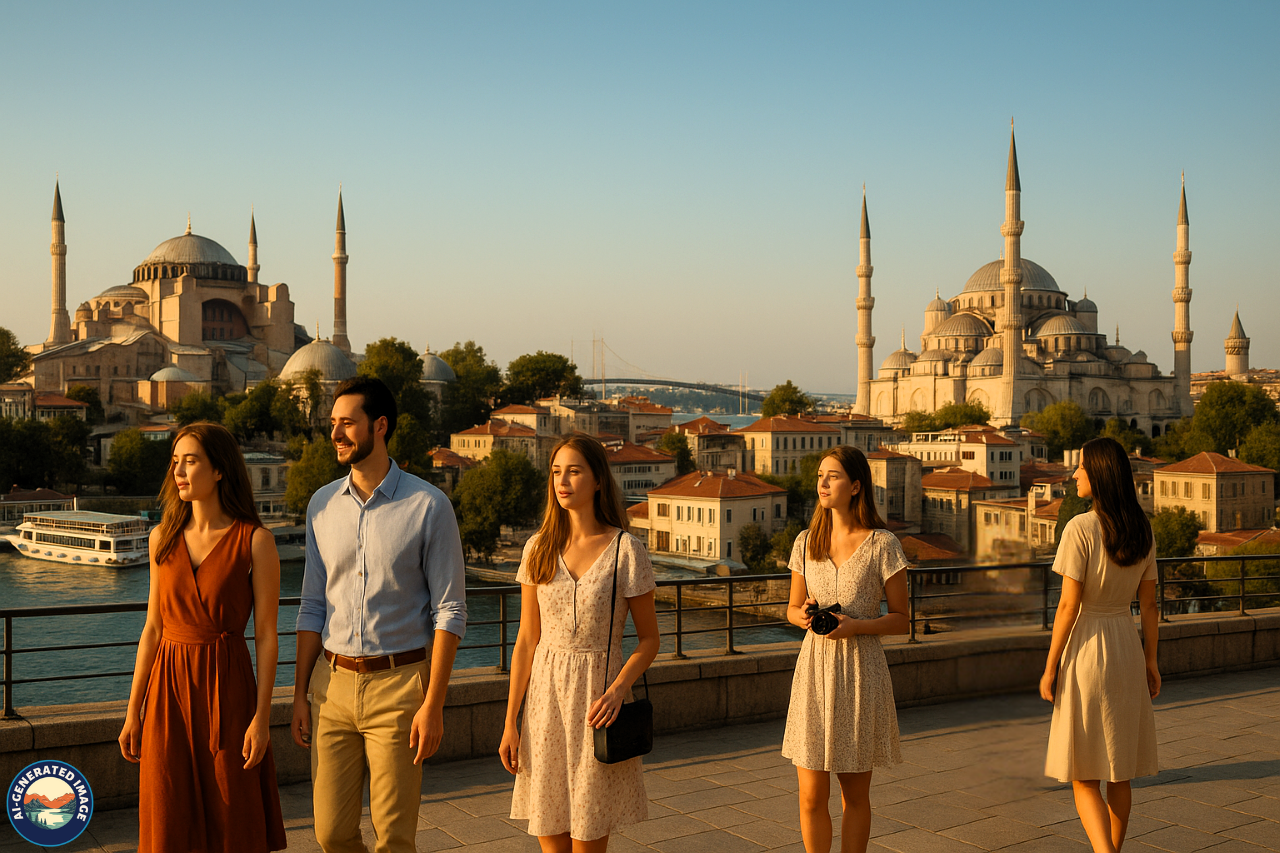
Ankara: The Political Heart
Ankara, the capital of Turkey, is home to several important landmarks, including the Anıtkabir, the mausoleum of Mustafa Kemal Atatürk, the founder of modern Turkey. The city is also a cultural center, offering museums, parks, and vibrant markets.
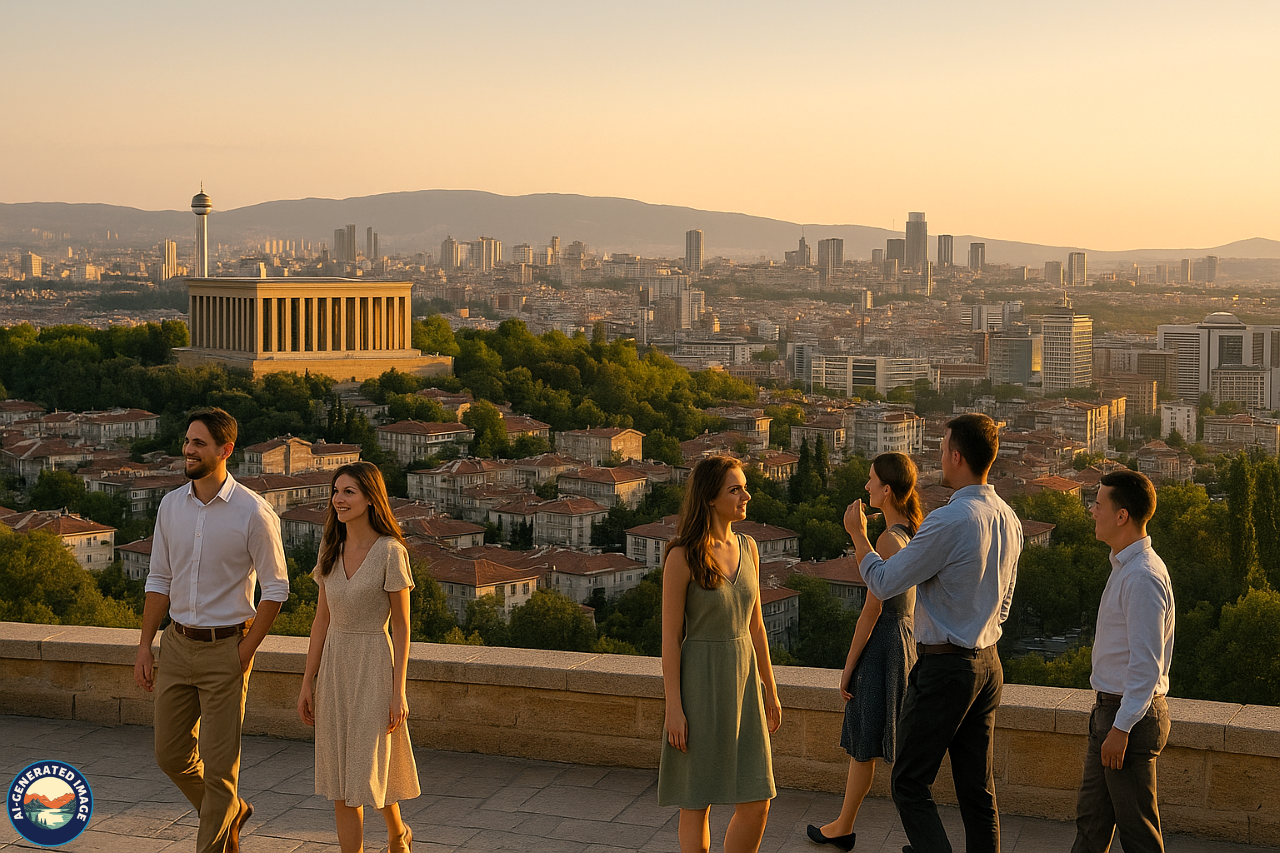
Izmir: The Coastal Charm
Izmir, located on Turkey’s Aegean coast, offers a laid-back atmosphere with beautiful beaches and lively markets. It’s a city that seamlessly blends modern living with rich history, including ancient ruins like the Agora and Kemeraltı Bazaar.
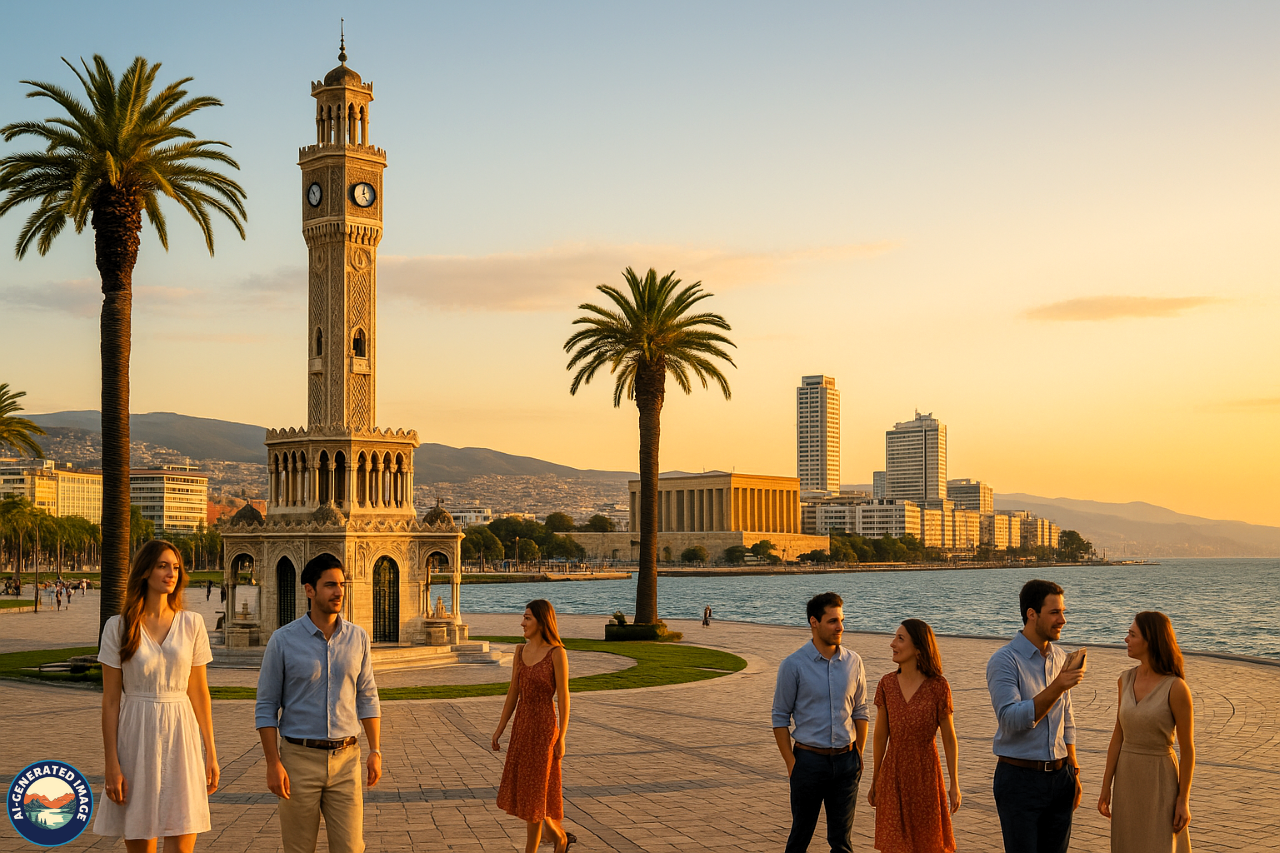
Antalya: The Mediterranean Gem
Antalya is a stunning city on Turkey’s southern coast, known for its ancient ruins, charming old town (Kaleiçi), and breathtaking beaches. The city is a favorite among tourists seeking both history and relaxation by the Mediterranean Sea.
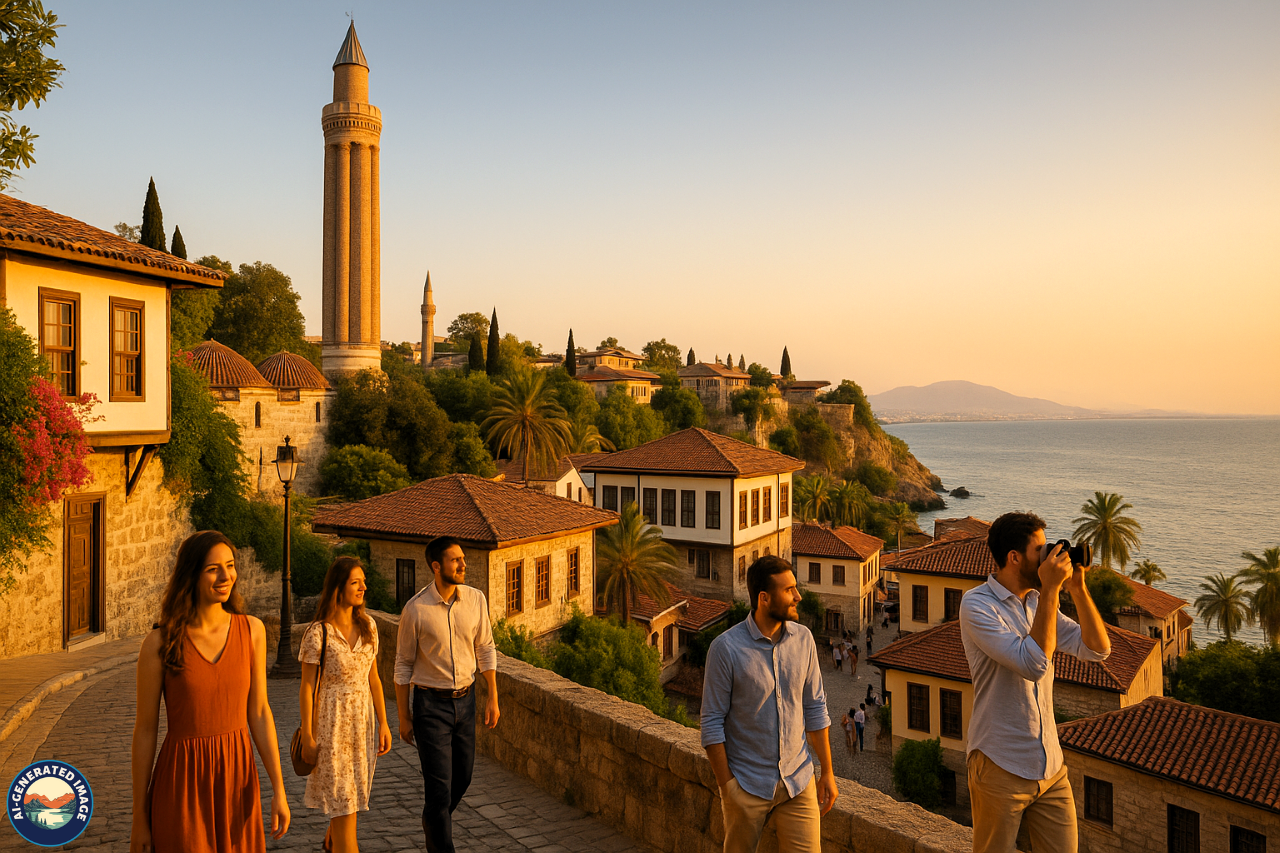
Adventure and Outdoor Activities
Turkey offers countless opportunities for outdoor enthusiasts, from hiking and trekking to diving and sailing.
Hiking and Trekking
-
Lycian Way:
-
This 540-kilometer trail along Turkey’s southwestern coast offers spectacular views of the Mediterranean, ancient ruins, and charming coastal villages.
-
Mount Ararat:
-
A challenging climb, Mount Ararat attracts trekkers seeking to conquer Turkey’s highest peak. The hike rewards adventurers with stunning views of the surrounding valleys.
Water Sports and Diving
Turkey’s coastline is perfect for water activities, from scuba diving in the crystal-clear waters of the Mediterranean to sailing along the stunning Turkish Riviera.
Hot Air Ballooning in Cappadocia
Cappadocia is famous for its otherworldly landscapes, and a hot air balloon ride offers the best way to take in the beauty of the fairy chimneys, ancient cave dwellings, and rolling valleys.
Shopping in Turkey
Shopping in Turkey is an experience in itself, offering everything from luxury items to handcrafted treasures.
Grand Bazaar in Istanbul
One of the largest and oldest covered markets in the world, the Grand Bazaar is a must-visit. It’s filled with thousands of shops selling jewelry, spices, textiles, and more.
Local Markets and Bazaars
Beyond the Grand Bazaar, Turkey has many local markets and bazaars where visitors can find unique souvenirs, such as pottery, textiles, and handmade goods.
Turkish Souvenirs
Popular souvenirs include Turkish carpets, copperware, evil eye charms, and Turkish delight. These items offer a glimpse into Turkey’s artistic traditions and make for great gifts.
Practical Travel Tips
Before visiting Turkey, it’s important to plan to ensure a smooth and enjoyable trip.
Best Time to Visit
The best time to visit Turkey is during the spring and fall, when the weather is mild, and tourist crowds are fewer. Summer can be hot, especially inland, so it’s best to avoid the peak summer months.
Transportation in Turkey
Turkey has an extensive transportation network, including buses, trains, and ferries. Renting a car is a great option if you want to explore rural areas.
Visa Requirements
Most visitors to Turkey will need a visa, which can be easily obtained online through the e-Visa system.
Safety and Health
Turkey is generally safe for tourists, though it’s always wise to take common precautions. Staying hydrated and following health advice will ensure a comfortable trip.
Conclusion
Turkey is a land of endless possibilities, where ancient history, vibrant culture, and stunning natural beauty come together. Whether you’re wandering through ancient ruins, relaxing by the sea, or exploring bustling cities, Turkey offers something for everyone. With its rich heritage, warm hospitality, and breathtaking landscapes, Turkey is undoubtedly one of the world’s most remarkable travel destinations.
FAQs
-
What are the top tourist attractions in Turkey?
-
The top attractions include the ancient ruins of Ephesus, the stunning landscapes of Cappadocia, the beaches of the Mediterranean and Aegean coasts, and the historic city of Istanbul.
-
-
What is the best time to visit?
-
The best time to visit Turkey is during the spring (April to June) and fall (September to November) when the weather is mild and ideal for sightseeing and outdoor activities.
-
-
Is Turkey a safe country for tourists?
-
Yes, Turkey is generally safe for tourists. However, like any destination, travelers should exercise caution, particularly in busy areas, and keep an eye on their belongings.
-
-
What currency is used in Turkey?
-
The official currency is the Turkish Lira (TRY). Many places also accept credit cards, especially in tourist areas.
-
-
Do I need a visa to visit Turkey?
-
Most visitors will need a visa to enter Turkey, which can often be obtained online through the official e-Visa application portal.
-
-
What is Turkish food known for?
-
Turkish food is known for its variety, from savory dishes like kebabs and mezes to sweet treats like baklava and Turkish delight. The cuisine is rich in spices, olive oil, and fresh ingredients.
-
-
Can I visit both Europe and Asia in Turkey?
-
Yes! Istanbul is a city that spans two continents: Europe and Asia, making it a unique place to visit where you can experience both cultures.
-
-
What are the must-try experiences in Turkey?
-
Must-try experiences include hot air ballooning in Cappadocia, visiting ancient ruins like Ephesus, relaxing in the thermal waters of Pamukkale, and shopping in the Grand Bazaar.
-
